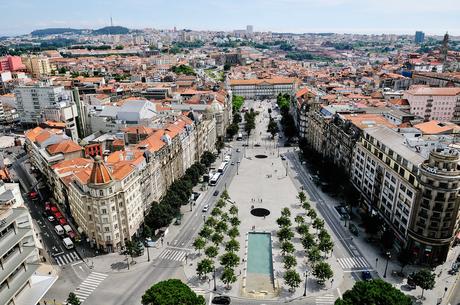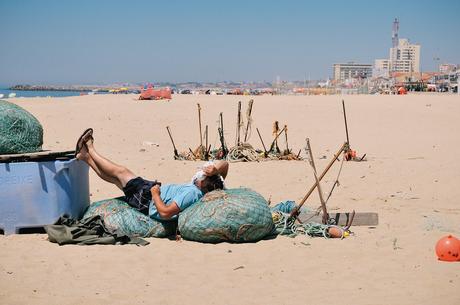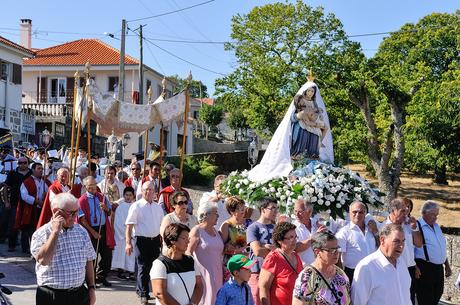
Yesterday was my 6-Year Anniversary in Portugal. You might've noticed that I wrote summary posts at the Year 1 and 2 marks and then the anniversary posts morphed into something else, like the (Almost) A Permanent Resident post last year, followed by a big delay before receiving my PR card three months later. Summaries of Years 3, 4, and 5 have been sitting in draft. Will they ever get published? All I can say is: I hope so!
I tend to avoid lists, but my time crunch has much to do with the fact that Portugal is now processing 2,000 REQUESTS FOR RESIDENCY EVERY DAY . This number is mind-boggling for a country as small as Portugal (resident population 10.3 million in 2018, Source: INE).
Thus, I wrote a list of things foreigners should know and randomized the topics. Why 60? 6 wasn't enough and 600 was too many!
If you're Portugal, you may encounter some of these 60 things. If you're to Portugal, you'll encounter most - if not all - of them eventually. As always, if you have other questions, scroll down and ask.1. Greetings are important. Preface every transaction with "Bom dia" or "Boa tarde". This is also an indication to the other person that you're not Portuguese and - hopefully - to slow down.
2. There are many places open on Sundays in Portugal's cities, from shops to restaurants. (In villages, not so much.) However, a number of restaurants close either on Monday instead of Sunday, or if they're small, closed Sunday AND Monday.
3. If you don't speak Portuguese but know Spanish or French besides English, start with French if dealing with a person over 60, and default to English with everyone else. If they speak neither, then try Spanish. Why only then? Historical baggage.
4. Use Multibanco (MB/blue and white machines), NOT Euronet (or what I like to call "Euronot"/grey and yellow machines). At Multibancos, the withdrawal limit is €200, with a daily limit of €400. You can do a lot at a Multibanco with a Portuguese bank card, including purchasing train tickets, donating to charity, and renewing monthly transit passes. For that reason, avoid the machines at the end of the month (and the beginning), because some folk like to Multibanco a whole month's worth of transactions all at once.
5. Films and TV shows are shown in the original language and subtitled, except for children's cartoons which are dubbed.
6. Portugal has two major air carriers: TAP Airlines and SATA/Azorean Airlines. While many airlines charge extra for meals and drinks, these are included in the fares and both airlines even list the service times. (This tells you something about how the Portuguese view food.)
7. There is a distinct lack of street signage. Use a navigation system to find addresses.
8. Portugal is regional (language, traditions, food), and this is especially true for the islands.

9. As in the rest of Europe, consumers are covered by the same laws: goods can be returned or service cancelled within 14 days without a reason, and all products come with a 2-year warranty. However, always read the fine print because there are exceptions.
10. Smoking is still quite prevalent. It's one of the downsides of sitting outdoors.
11. The Portuguese don't siesta like the Spanish.
12. Stop signs are but a suggestion in Portugal. They are treated more like a yield sign.
13. Dine slightly earlier than the Portuguese if you want better service, not at peak time because staffing levels don't change when it gets busy. For lunch, I like to go right when they open.
14. If you want ice in your drink, ask for it when you order your drink.
15. Double parking, triple parking, curb parking, and all kinds of creative parking are commonly found in Portugal.
16. No deadly animals here, aside from one and you are unlikely to encounter it: Lataste's Viper. (See 17.)
17. The word for snake in Portuguese is cobra. If you hear someone mention the word "cobra", don't worry - there are no cobras in Portugal.
18. Nobody really uses voicemail, so don't bother leaving one.
19. Plenty of things in Portugal are not obvious, especially to foreigners. Pluck up the courage and ask; the Portuguese are helpful.
20. Lunches are long. It's the biggest meal of the day, especially on Sunday.
21. There is no Amazon in Portugal, but you can order from Amazon Spain, Italy, UK (for now), Germany, and France without import duties.
22. Order from within the EU. If you order from outside, chances are your order will get stuck in customs for months. A company sent me a replacement for a camera strap that broke. It never arrived.
23. Restaurants close in the afternoon, usually between 3pm and 7:30/8:00 pm, when dinner time starts. You won't go hungry, though, snacks can be found at cafés, pastelarias, padarias, confeitarias, and the like.
24. The Portuguese government has a baby name registry (expanded in recent years) for cultural reasons, the results of which make it seem as if everyone has the same names.
25. Don't try to do business in August.
26. Those little appetizer plates and baskets of bread that you didn't order but showed up before the meal? They aren't free. Send them back to the kitchen asap without touching anything unless you are super hungry. You'll need a lot of space for the main dishes, anyway.
27. Don't expect to find everything in Portugal on the internet. In fact, many delightful things in Portugal have no URL, including shops, restaurants, products, and services.
28. Portuguese croissants are not like French croissants, they're more like brioche.
29. If you only see tourists, move on.
30. If you like coffee WITH dessert you should request it at the same time as the dessert, as the default is the dessert arriving before the coffee.
31. If someone is referred to as or it doesn't necessarily mean they're PhDs or physicians. In fact, chances are, they are neither - it's a title for practically anyone with a university education.
32. Aside from forest fires, the mainland is spared from recurring natural disasters (the islands are more exposed to Atlantic storms).
33. If you are phobic about the cleanliness of public toilets in Portugal, choose a food establishment with female workers and be an early patron (not towards the end of the day).
34. The minimum wage in Portugal in 2019 is €600 per month x 14 (there are two extra payments, in July and December), or €700 per month across a calendar year. As is the case around the world, this is the wage of many service workers.
35. There is a Complaints Book ( "Livro de Reclamaçoes") in every establishment and it is your right to register a complaint there. There is an online version of it as well, but limited to 21 entities (see the PT version for the full list, which doesn't display in the EN version).
36. Portuguese are generally calm in nature. Except behind the wheel, when they turn into Italians.
37. Dryers are not a standard appliance in Portuguese homes. Dishwashers are not a standard appliance in long-term rentals.
39. There are no "wildcat strikes" in Portugal; all strikes are announced, generally two weeks in advance or more.
40. Don't ask someone in Lisbon about Porto and vice versa as they tend to trash each other, resembling the rivalry between first and second cities in most countries.
41. Portugal has a second official language you've probably never heard of: Mirandês (Mirandese). It's spoken in the northeast corner of Portugal and there are few native speakers (estimated 15,000 as of 2000).
42. There is a popular saying that describes Portugal's cities in a nutshell: "Braga prays, Coimbra studies, Lisbon spends, and Porto works."
43. There is no "radio edit" for songs on commercial radio.

44. Delays are normal. Build in more - much more - contingency time in your schedule than ever before.
45. In the north of Portugal, swear words are considered punctuation and are generally not uttered to offend (you will know when they are).
46. There are two major periods of recent Portuguese history with continued influence in modern Portuguese society: the dictatorship (Estado Novo, 1933-1974) which still affects the older generation (Baby Boomers) and the most recent economic crisis (EU/IMF bailout 2011-2014 until exit from deficit program in 2017) which has impacted their children.
47. Rental contracts in Portugal often now require fiadores (financial guarantors), especially in cities where the rental demand is higher. In lieu of a fiador, usually a larger deposit is requested (up to 6 months, sometimes more) but some landlords won't rent without a fiador at all.
48. Tips are appreciated but there is no tipping culture in Portugal on the whole. (Tourist zones are the exception.) Tipping prompts are generally directed at foreigners, not Portuguese. Gratuities are generally not added to bills unless stated.
49. There are various accents all over Portugal, but the island of São Miguel in the Azores has its

